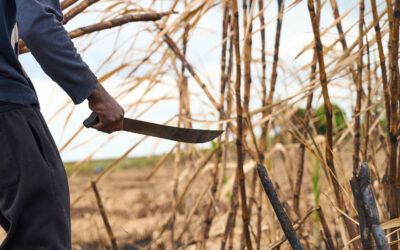The Dominican Republic (D.R.) is a source, transit and destination country for trafficking in persons (TIP). Trafficking is pervasive in agricultural production for sugar, rice and coffee, the construction sector in expanding urban zones, domestic servitude, forced begging and tourism.
Program:
The goal of the two-year project is to enable a multisector response and build local resistance within vulnerable communities in Santo Domingo, Santo Cristobal, and Puerto Plata. Specific objectives:
- Enhance coordination among stakeholders and institutionalize victim-centered investigations and prosecution of TIP cases.
- Build resistance and resilience to labor and sex trafficking within vulnerable communities.
- Improve capacity of service provider organizations to identify victims and provide comprehensive quality services to survivors.
Partners:
International Association of Women Judges (IAWJ), Free the Slaves (FTS), and Movimiento de Mujeres Dominicanas y Haitianas (MUDHA) are uniquely positioned to help strengthen counter-TIP efforts along the justice chain, reduce the influence of corruption, improve cross-border sharing of information and strategies, and build the resilience of vulnerable populations to TIP.
Activities:
- Institutional Response: IAWJ will collaborate with their Dominican chapter to ensure a sustainable, institutional response. IAWJ will also organize one conference in the D.R. to facilitate exchanges between judiciaries in the Caribbean through its network of member associations (including the Haitian and Caribbean Associations of Women Judges).
- Community Education and Organization: FTS will work with MUDHA and other D.R. partners to implement its Community Liberation Model in 13 communities. This includes conducting participatory social mapping that identifies areas with the most vulnerable groups to trafficking, as well as the services available to survivors. FTS will build MUDHA’s capacity to establish community-led anti-trafficking groups that will educate and mobilize community members, and will also identify and protect victims. Through awareness activities, 3,000 people will have increased understanding of trafficking, half of the community groups will be actively involved in anti-trafficking efforts, and at least 100 people will identify themselves as victims of trafficking based on an increased understanding of their rights.
- Survivor Support: MUDHA and other local partners will work with local authorities to identify and improve local supportive services, establish a referral system so victims of trafficking receive services they need. Targeted services include legal assistance, shelter, health care and socioeconomic support. The community committee members will collaborate with the judicial system; they will identify and report/denounce traffickers.

